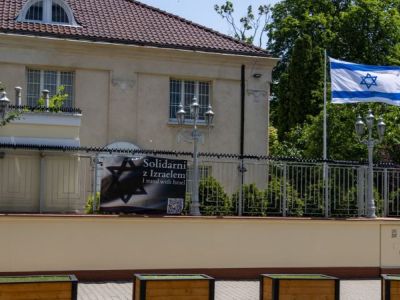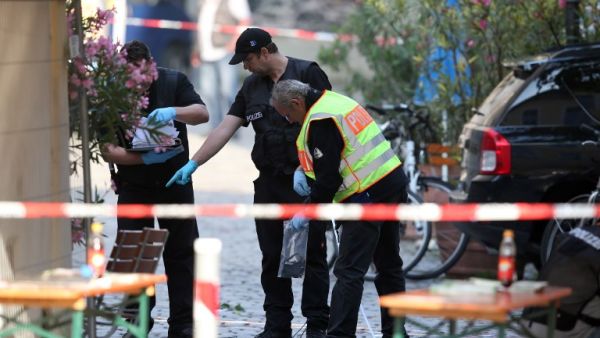German police searched and confiscated evidence at a refugee hostel on Monday, but declined to confirm whether the move was linked to a failed Syrian asylum seeker who injured 12 people by blowing himself up outside a festival venue in southern Germany.
"Investigations are being conducted surrounding the deceased [suspect] - we cannot be more specific about it at this time," a police spokesman said of the suicide bombing in Ansbach, the fourth violent attack to shake Germany in the past week.
The bombing was "very likely" an act of "terrorism," Bavaria's top security official Joachim Hermann said earlier on Monday. The Interior Ministry added that it did not have concrete evidence yet to show links to extremist groups.
The 27-year-old Syrian suspect, who detonated an explosive device in central Ansbach at around 10 pm (2000 GMT) Sunday, came to Germany two years ago, was denied asylum last year and had been due for deportation to Bulgaria, a spokesman for the Interior Ministry said.
The so-called Dublin principle observed by many countries determines that asylum seekers who have passed through a safe third country where they could have claimed asylum can be sent back there in order to make their claim.
No group has yet claimed responsibility for the attack, which saw the suspect detonate a cluster bomb he was carrying inside a rucksack outside a music festival venue in Ansbach after being denied entry because he did not have a ticket.
According to investigators, the suspect had been known to police for drug-related and other crimes. He had received treatment at a psychiatric clinic and had tried to kill himself on two prior occasions.
Three of the four violent attacks committed in Germany over the past week were perpetrated by asylum seekers.
On Monday, a 17-year-old asylum seeker likely from Pakistan attacked passengers of a Bavarian commuter train with an axe and a knife, injuring five people. The Islamic State group claimed responsibility.
On Sunday, a 21-year-old Syrian asylum seeker killed a woman and injured four others with a deli knife in Reutlingen in what investigators say was not an act of terrorism.
German Chancellor Angela Merkel is "mourning with the families of the woman killed in Reutlingen" and her "thoughts are with the families of those injured in Reutlingen and Ansbach," her deputy spokeswoman Ulrike Demmer said Monday.
The European Union also reacted to the attack, saying that its compassion for refugees will not come at the expense of security in the bloc.
"Europe's doors are open to those who flee war and persecution and who seek asylum, but we will defend ourselves against attacks on our way of life," European Commission spokesman Margaritis Schinas told journalists in Brussels.
"Our sense of compassion does not and must not come at the expense of our security," he added.
Three of the 12 people injured in the Ansbach attack have been released from hospital, the BR24 broadcaster reported citing the ANregiomed hospital group.
Of the nine that remain in treatment, none has life-threatening injuries, but some are "considerably traumatized," a spokesman told BR24.
By Friederike Heine










